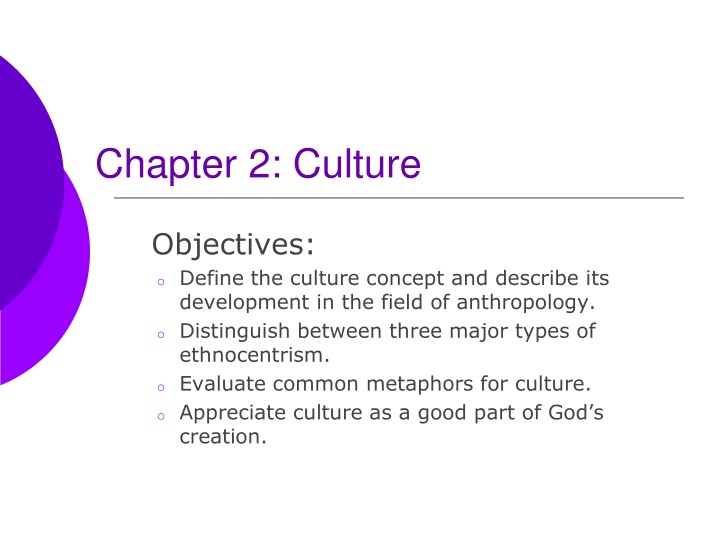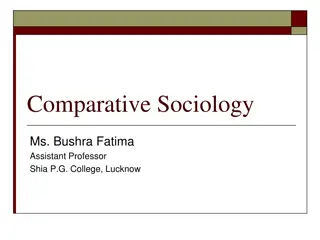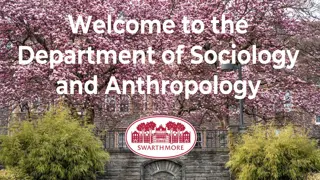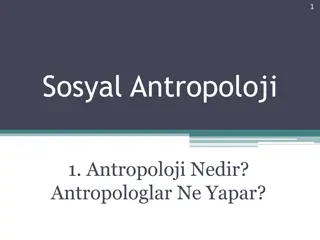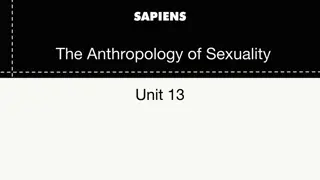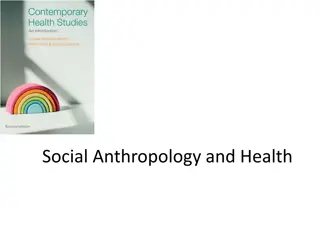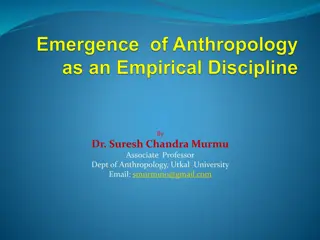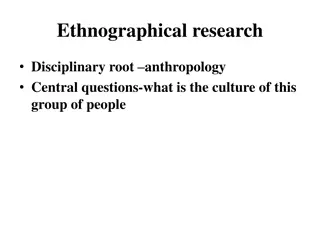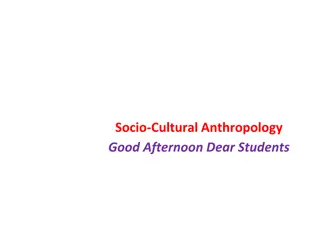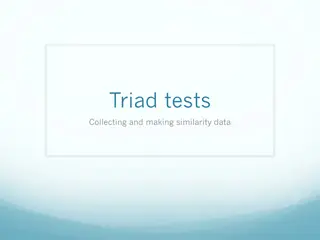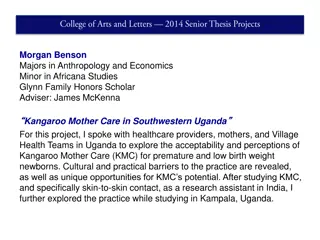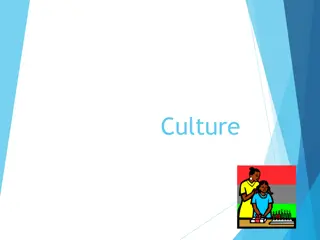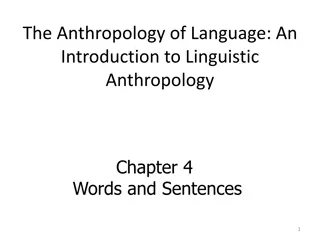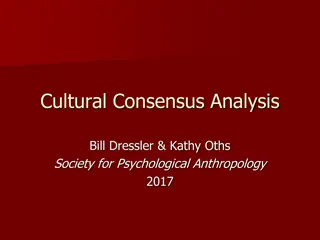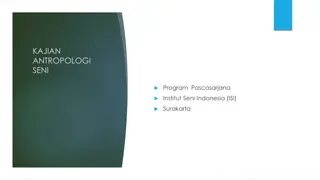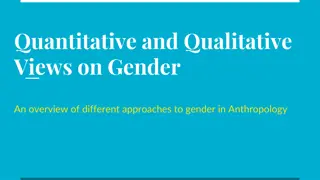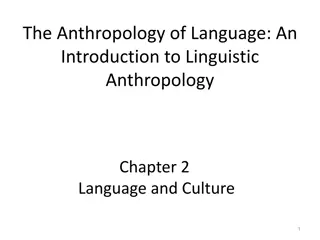Developing Anthropology: Understanding Cultural Concepts
Explore the evolution of cultural concepts in anthropology, from early understandings to challenges of ethnocentrism and the importance of cultural relativism. Learn about the varieties of ethnocentrism and how culture is a dynamic aspect of human existence.
Download Presentation

Please find below an Image/Link to download the presentation.
The content on the website is provided AS IS for your information and personal use only. It may not be sold, licensed, or shared on other websites without obtaining consent from the author.If you encounter any issues during the download, it is possible that the publisher has removed the file from their server.
You are allowed to download the files provided on this website for personal or commercial use, subject to the condition that they are used lawfully. All files are the property of their respective owners.
The content on the website is provided AS IS for your information and personal use only. It may not be sold, licensed, or shared on other websites without obtaining consent from the author.
E N D
Presentation Transcript
Chapter 2: Culture Objectives: o Define the culture concept and describe its development in the field of anthropology. o Distinguish between three major types of ethnocentrism. o Evaluate common metaphors for culture. o Appreciate culture as a good part of God s creation.
The Ethnic Fair What do you put in an American booth? Thinking about your own culture can make you aware of differences that make generalizations difficult. Facts about culture Culture cannot be primarily expressed through food, clothing, and holiday trinkets. Culture is not a fixed, bound entity. An individual can be familiar with or belong to more than one culture.
History of the Culture Concept Early understandings of culture Comes from the German word Kultur, meaning to develop or grow. Early scholars viewed cultural development as a single path, or line, from simple to complex. Culture was considered to exist in terms of high or more in some societies, and low or less in others. How is this conception of culture expressed in contemporary U.S. English?
History of the Culture Concept Challenges to unilinear cultural evolution Historical particularism (Boas) Each culture embodies a unique representation of its history and context. Anthropologists now emphasize how power dynamics shape the choices people make about their own cultures.
Cultural Relativism The view that various cultural practices and beliefs are best understood in relation to their entire context.
Cultural Relativism As Distinct From Moral relativism The idea that something is only right or wrong according to context-specific criteria. OR Epistemological relativism The belief that the validity of knowledge itself is limited to the context in which it was produced.
Varieties of Ethnocentrism Ethnocentrism Putting one s own culture (ethno) at the center (centrism) of interpretation, typically devaluing the other culture. Varieties Xenophobia/racism Cultural superiority Tacit ethnocentrism
Varieties of Ethnocentrism Xenophobia An intense, irrational antipathy of people from other countries or cultures. Racism The belief that humans are organized into race groupings that are different from one another in intelligence and worth.
Varieties of Ethnocentrism Cultural Superiority The belief that one culture is more enlightened, advanced, civilized, or intelligent than another.
Varieties of Ethnocentrism Tacit Ethnocentrism The assumption that one s own way of life is just normal, not cultural.
The Culture Concept Today Culture The total way of life of a group of people that is learned, dynamic, shared, power laden, and integrated.
Describing Culture Metaphors for Culture water in which we swim lenses through which we see the world Christ and culture rules of the game a map a many layered onion or a parfait What are the problems with each metaphor? What does each get right? What does each leave out?
Culture as Conversation The Preferred Metaphor: Culture as a conversation The metaphor of culture as conversation captures the learned, dynamic, shared, power laden, and integrated aspects of the culture concept.
Christians and Culture Christians cannot reject or deny whatever culture in which we find ourselves. God s truth in Scripture and in Jesus is only and always revealed to us through specific cultural forms. Without culture, we have no language, no symbols, no revelation, and no community.
Discussion Questions 1. Name one culture you have visited or studied in depth. Generate an example of a cultural difference that you first interpreted in an ethnocentric way and then learned to view with cultural relativism. 2. Design an ethnic fair exhibit for your culture (or one of the cultures with which you identify). What items would you choose to represent your culture? Now think critically: In what ways does the ethnic fair accurately represent your culture? How does the ethnic fair approach misinterpret or oversimplify your culture?
Discussion Questions (continued) 3. Read Genesis 1-2. List the elements of culture present before the fall. Consider the total way of life of a group of people that is learned, dynamic, shared, power laden, and integrated. This includes symbols, language, marriage, economy, family, custom, law, and other elements of life. It includes the ways in which these elements are stable, contested, or changing. In your experience, have Christians tended to consider culture as part of God s good creation, or as part of the fall? How might a view of culture as emerging from creation shape Christians cultural engagement?
